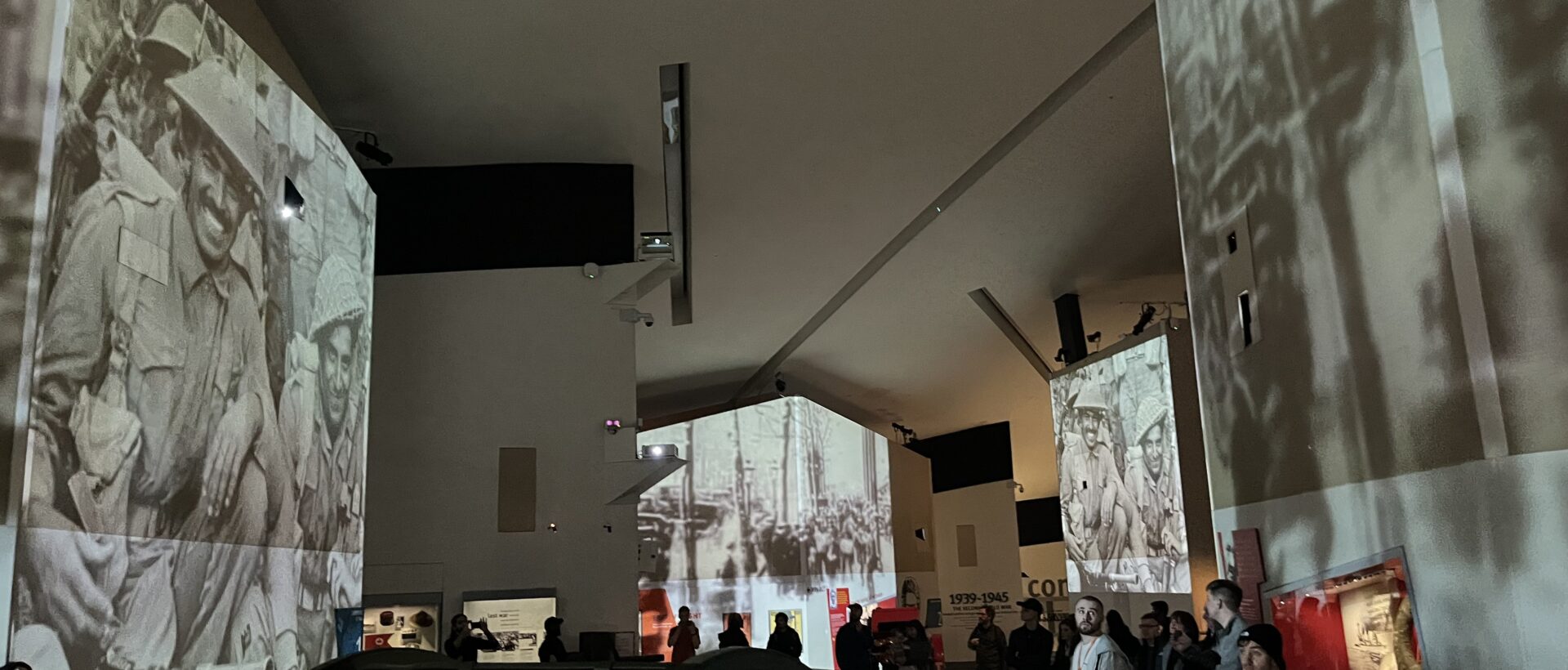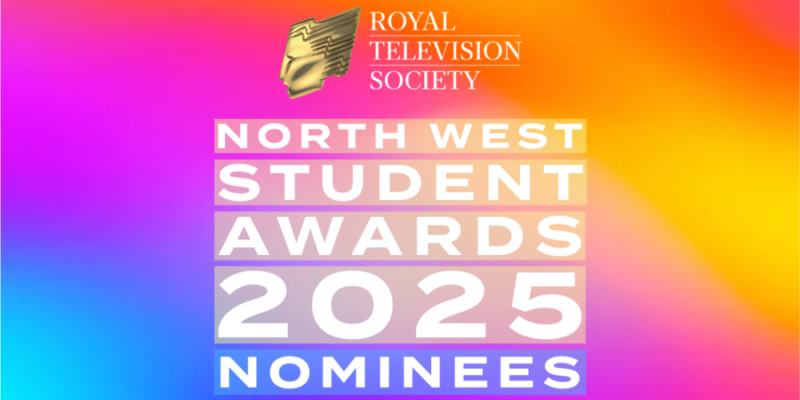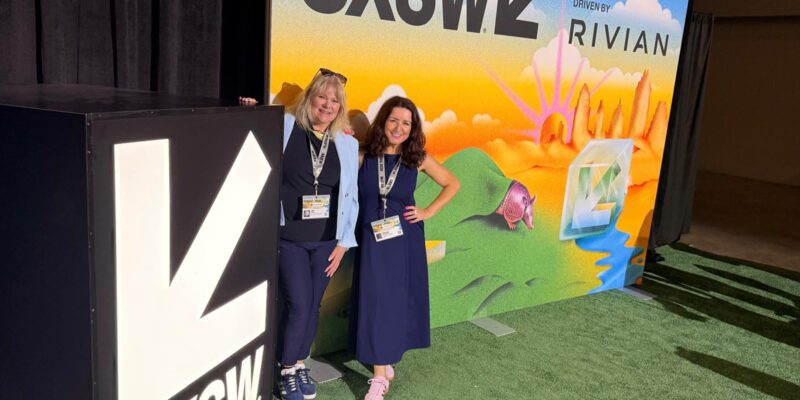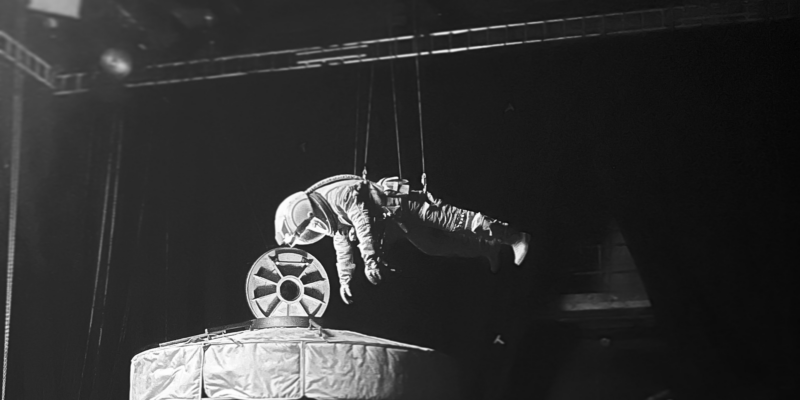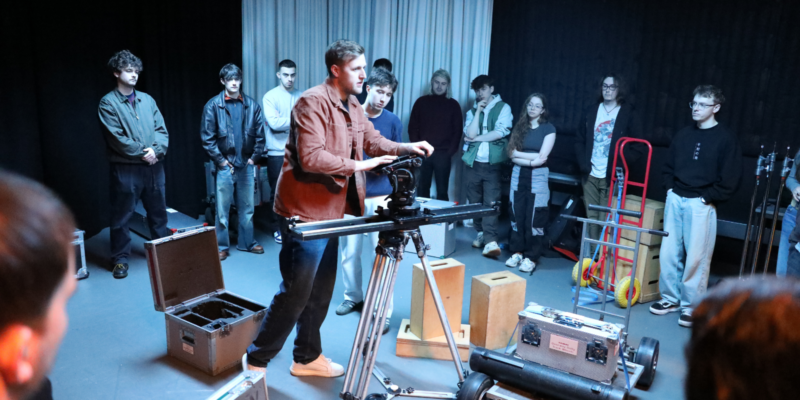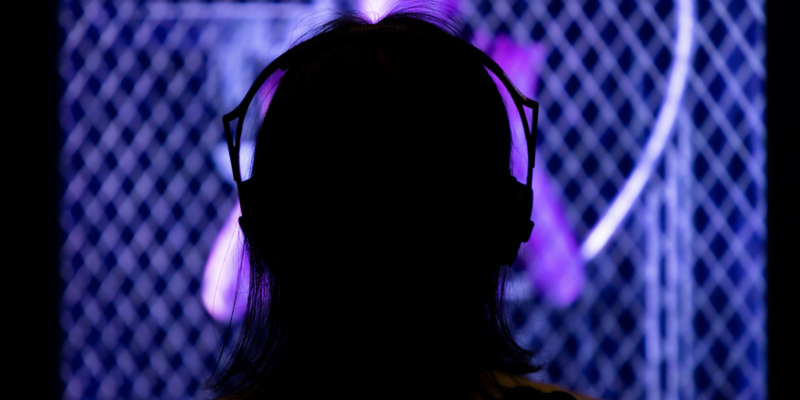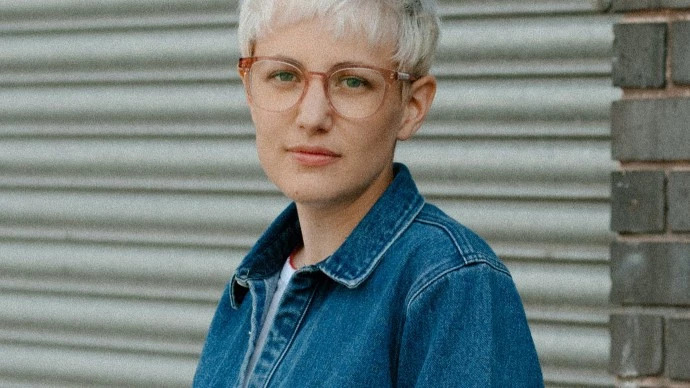School of Digital Arts (SODA) students from Manchester Metropolitan University collaborated with IWM North recently to develop audio visual responses to the museum’s sound archives, working together across our MA Animation, Filmmaking, Games Art, Photography and Sound Design courses as part of an interdisciplinary Co-Labs unit.
Challenged to present and preserve voices and memories from past eras in an immersive AV environment, the students explored innovative and engaging ways to visualise and re-contextualise their archive material.

IWM North Visualisation. Soup Co.
Students were encouraged to rethink known and familiar narratives in different ways, posing questions, creating conversations and beginning a dialogue with the museum collection. They produced a range of responses, some drawing on personal experience, some bringing fresh, considered perspectives to existing dialogues – and others focusing on the immersive potential of the environment from an audience viewpoint.
Utilising the capabilities of the museum’s Big Picture Show – an immersive space featuring 20+ projectors and 40+ discrete channels of sound) – students created short provocations and immersive experiences to draw on the sensory capacity of the space, using projection mapping, 3D scans and models and physical scale models.
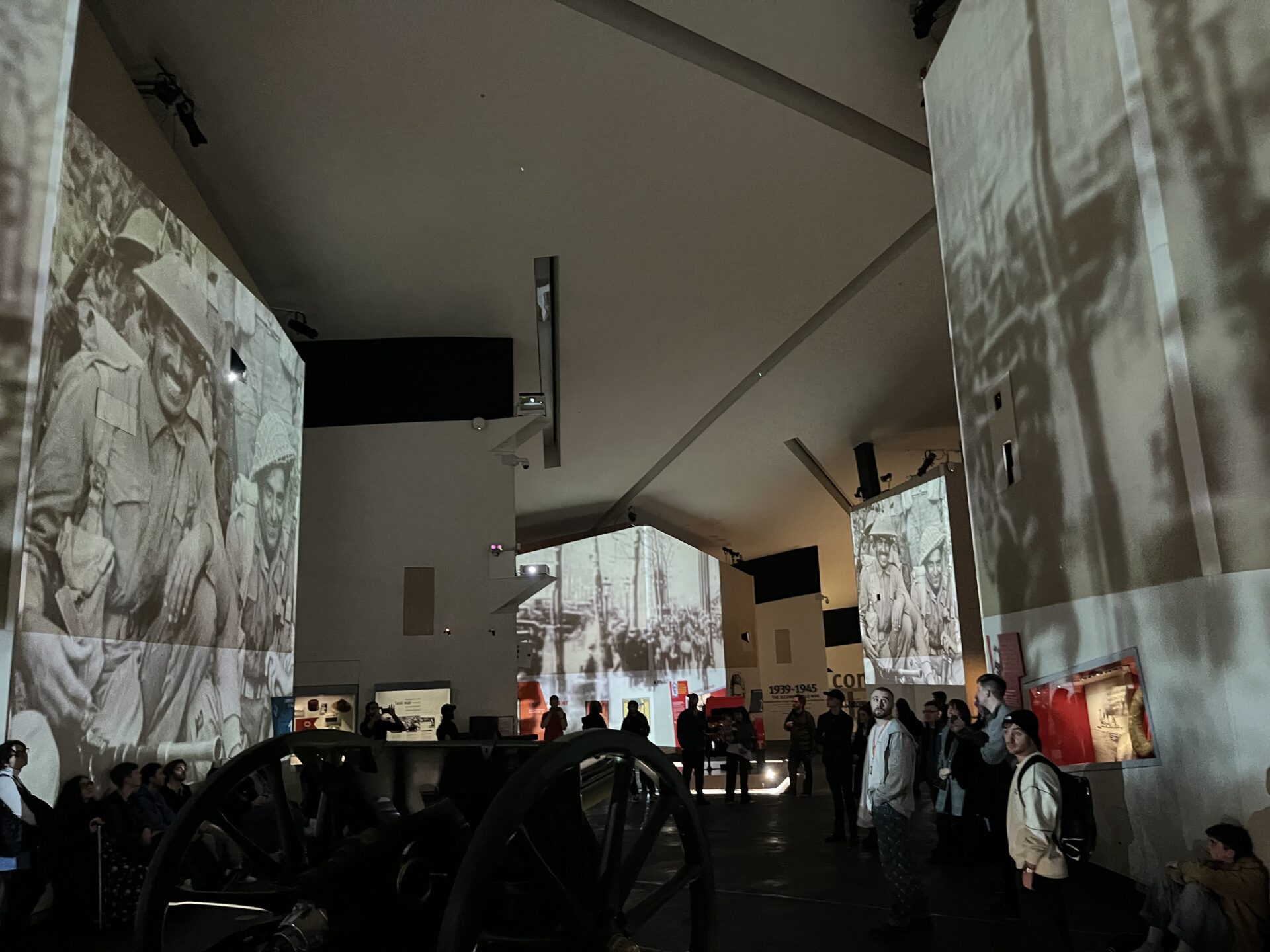
Joseph Wright (MA Games Art, SODA) said, ‘When I applied for a Masters course in Games Art, I would never have expected to be tasked with working on a Big Picture Show for IWM North. I’d have assumed that a project like that – to be projected onto over twenty screens, two stories high – would be beyond the scope of a small team, in such a short time, yet somehow every group managed to output something that impressed me in a different way.
‘Until a member of our group brought the Greenham Common Protest to the table, I wasn’t familiar with it. It was a pleasure to learn all about it, trawling the archives and seeking out primary sources for the privilege of hearing the stories of people who were there.’
Rachael Garvey, (MA Photography, SODA) said, ‘I found the project really enjoyable. It was daunting, and admittedly challenging at times, but being able to delve into the archives and stories within them was exciting. My group’s project centred around a conflict that I’d never heard of, Perestroika, so to be able to learn more about that and to inform an audience of its effects via someone’s lived experience was an honour. Working with IWM’s archives was very interesting and be able to say that our work has been shown at the museum is amazing.’
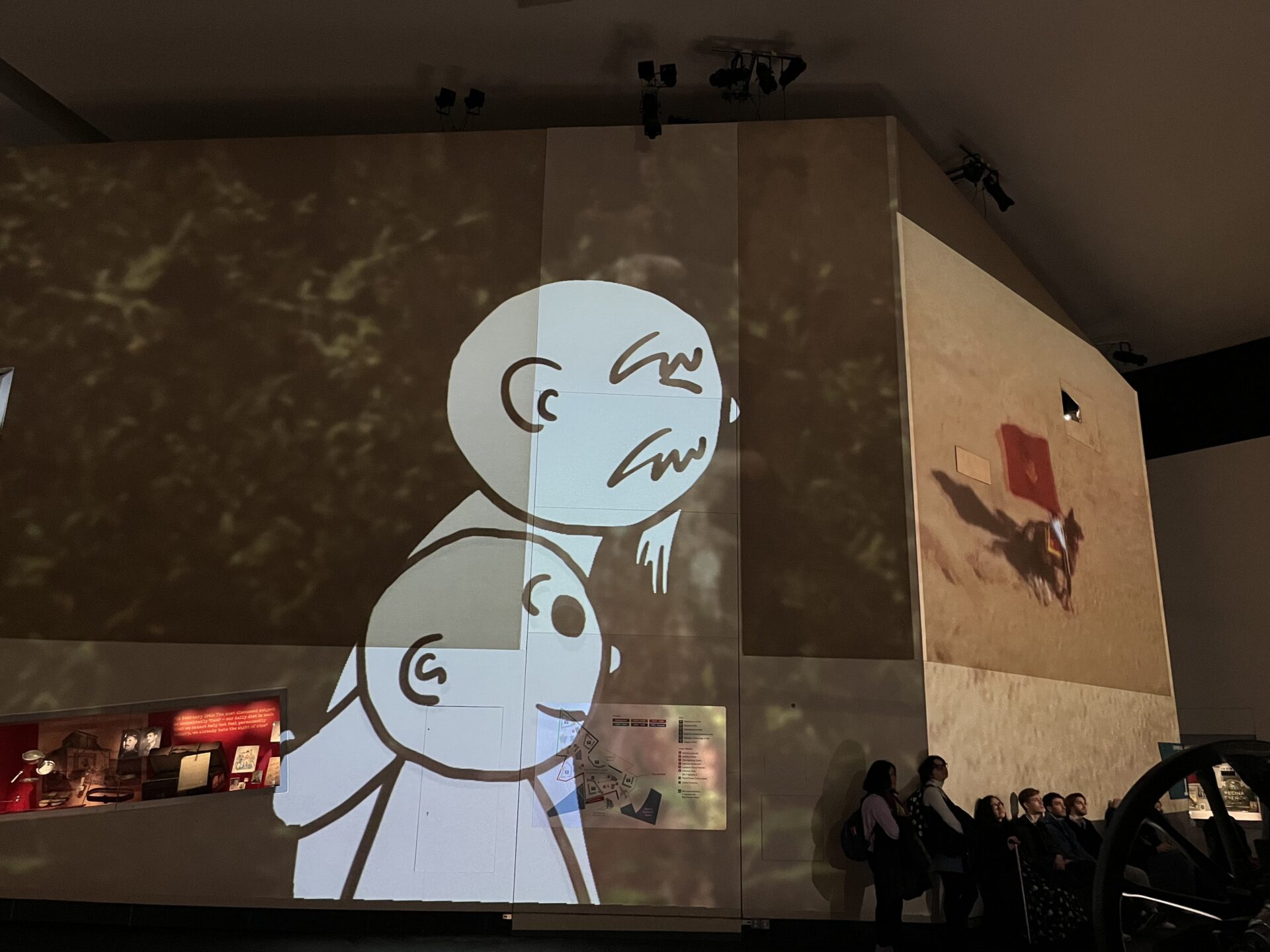
Georgia Masterson (MA Animation, SODA) said, ‘My group took a more personal approach to the project. My mum, born in Tbilisi in 1968, gave us permission to share her first-hand experience about living through the first South Ossetia war. We told her story through our work, showing the economic repercussions of war, how this affected the availability of necessities such as food and healthcare, and the emotional impact of losing a loved one.’
‘This unit has helped me develop valuable skills in communication and teamwork, both of which will be important when applying for roles in industry. I also learned some new techniques and had the opportunity to use Unreal Engine. As the final outcome and methods used are so different to my usual work, I believe that this project will make a unique and strong addition to my personal portfolio.’
Isa Ali Abdulla Ali Saleh Alsaba (MA Games Art, SODA) added, ‘Working with IWM North was an exciting way to start my first term at SODA. It really broadened my artistic mindset by showing me what’s possible when divergent creative practitioners cross paths… I understood the Big Picture Show the same way I would a landscape — an immersive audio-visual environment. This thought process has actually been really inspiring and helpful for my creative practice: exploring how I can make environments more immersive through the power of surround sound and dynamic visuals.’
Mark Thomas, Senior Lecturer in Filmmaking at SODA is also Founder and Creative Director at Soup Collective, who have created shows for the space for more than a decade. This was an opportunity to offer up the framework to allow SODA students to work directly with industry and rethink how the space could be used.
He said of the collaboration, ‘The students have responded incredibly to the project, some drawing on personal experience, some bringing fresh, considered perspectives to existing archive materials within the museum, and others focussing on the immersive potential and scale of the environment.
‘To drop into this complex and challenging live group project as part of their SODA Co-Lab in the first term is no small feat, and the fact that they have managed to navigate the technical challenge of working together in such a space while still bringing such a clear sense of experimentation, play and creative interrogation is testament to their dedication and skills.
‘There was a real sense of pride and confidence in the work during the public showcase, reinforced by such a positive response from the museum managers, directors and wider team that points the way for future collaborations between the museum and SODA. A huge well done to them all!’
Learn more about SODA’s courses and Co-Lab units here.

